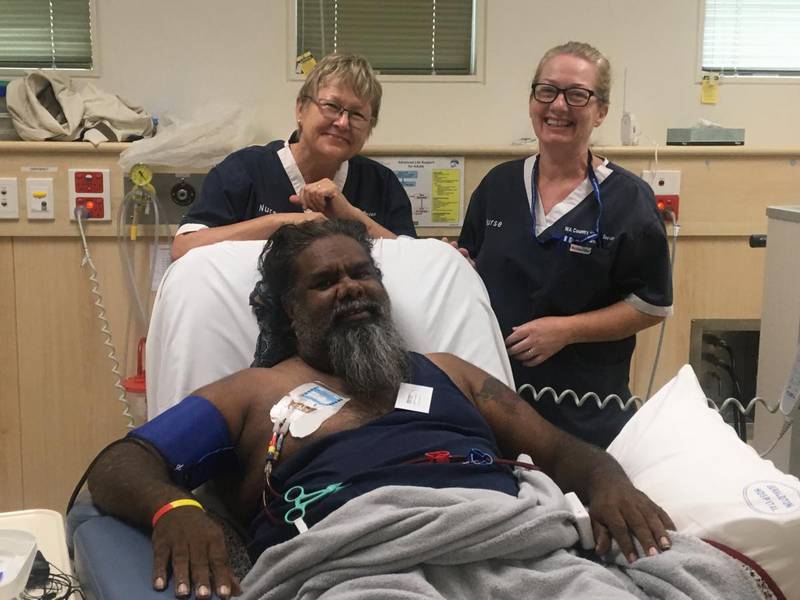Geraldton’s renal services provide Derek with more time with grandkids
 Angela McCormack (Registered Nurse) and Pia Grundy (Registered Nurse) with Geraldton Renal Dialysis Unit patient Derek Councillor.
Angela McCormack (Registered Nurse) and Pia Grundy (Registered Nurse) with Geraldton Renal Dialysis Unit patient Derek Councillor.
The WA Country Health Service’s Geraldton Renal Dialysis Unit facilitates 108 haemodialysis treatments every week for patients with Chronic Kidney Disease, making this week’s Kidney Health Week (8-14 April 2019) an important date for country WA to mark in their calendars.
Derek Councillor is a Geraldton local with kidney disease who has been receiving haemodialysis treatments since December 2018.
“I receive treatments three times a week to clean the toxins from my body – it helps do what my kidneys used to do,” Mr Councillor said.
“The Geraldton Renal Dialysis Unit staff are ten out of ten.
“They treat everyone equally - they care about their patients and listen to their wants and needs. I feel 100 per cent confident to ask questions,” he added.
Mr Councillor said he was very pleased to be able to receive the care he needs in his home town, rather than needing to make trips to Perth for treatments.
“Having treatments in Geraldton means I can stay close to my children and grandchildren who give me their full support,” he said.
The Geraldton Renal Dialysis Unit has space for 36 permanent residents who receive three haemodialysis treatments a week for between four and six hours per session.
The WA Country Health Service Acting Clinical Nurse Manager (Midwest) Bronwyn Cork said that the Geraldton Renal Dialysis Unit is usually full of patients who require the treatments.
“On average the Geraldton renal team perform more than 5600 haemodialysis treatments each year.
“The haemodialysis process in when an artificial kidney filters and cleans patients’ blood of unwanted toxins and water.
“This process takes around four hours and involves a needle which takes the blood away to the artificial kidney and another needle which returns the clean blood back to the body,” Ms Cork said.
Chronic Kidney Disease often has no symptoms making it important to get regular kidney health checks with a GP. If detected early, many cases of kidney disease can be treated and well-managed without the need for haemodialysis.
The risk of getting kidney disease can be reduced by controlling your blood pressure and blood sugar, maintaining a healthy weight, not smoking and exercising regularly.

